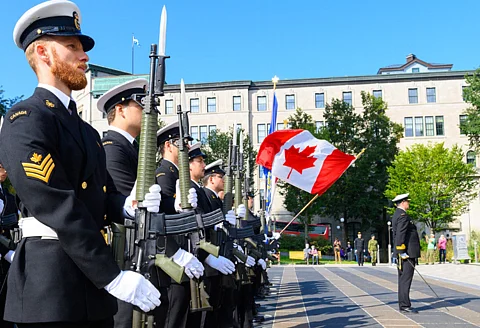

A federal judge has approved a class action settlement for Canadian veterans who experienced racial discrimination over four decades, but only a small percentage of eligible claimants applied for the minimum $5,000 compensation, according to Federal Court records.
Blacklock's Reporter says Justice Ann Marie McDonald wrote that the court heard repeated testimony that racism within the Canadian Armed Forces was not an isolated experience but a constant presence in the lives of many service members. T
The settlement concluded nine years of litigation.
Of an estimated 45,842 veterans eligible for compensation, only about 1,000 were contacted directly, and 690 applications were submitted. More than 600 potential class members provided written statements detailing their experiences with racial slurs, harassment, and discrimination, often describing it as career-altering.
The settlement allowed for a base payment of $5,000, with additional compensation of up to $30,000 for those who submitted personal narratives. The total payout was capped at $150 million, including $5 million in legal fees, which the court deemed reasonable compared to similar settlements.
Some plaintiffs were dissatisfied with the agreement, dropping demands for a formal apology.
McDonald acknowledged that some veterans viewed the settlement as inadequate, with some describing it as a "licence fee to discriminate" and arguing that no amount of money could compensate for the harm they endured. Others noted financial losses and missed career opportunities due to systemic discrimination.
While acknowledging the objections, McDonald emphasized that a negotiated settlement is inherently a compromise, noting that while some veterans may have received more compensation through a trial, others could have received less.
The Canadian Armed Forces have been officially racially integrated since 1939.
In 2017, the federal government set a target for 12% of new recruits to be from visible minority backgrounds under its Strong, Secure, Engaged policy, a goal that has never been met.
A 2014 report on recruitment challenges found that many visible minority groups perceived military service as a last-resort career choice due to its dangers and demanding nature.
